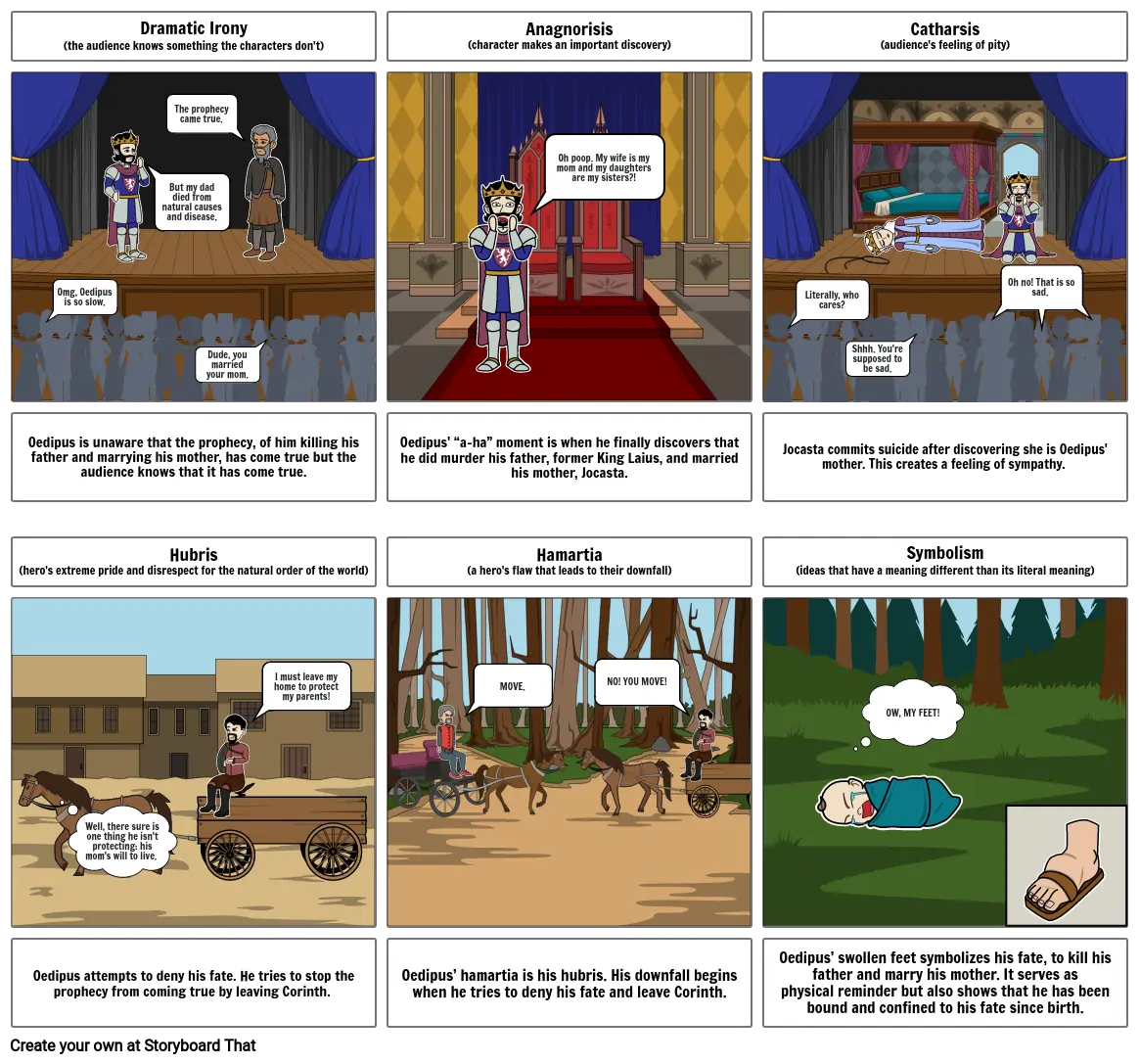Oedipus End of Unit Project

Siužetinės Linijos Tekstas
- Dramatic Irony(the audience knows something the characters don't)
- Omg, Oedipus is so slow.
- But my dad died from natural causes and disease.
- The prophecy came true.
- Dude, you married your mom.
- Anagnorisis(character makes an important discovery)
- Oh poop. My wife is my mom and my daughters are my sisters?!
- Catharsis(audience's feeling of pity)
- Literally, who cares?
- Shhh. You're supposed to be sad.
- Oh no! That is so sad.
- Oedipus is unaware that the prophecy, of him killing his father and marrying his mother, has come true but the audience knows that it has come true.
- Hubris(hero's extreme pride and disrespect for the natural order of the world)
- I must leave my home to protect my parents!
- Oedipus' “a-ha” moment is when he finally discovers that he did murder his father, former King Laius, and married his mother, Jocasta.
- Hamartia(a hero's flaw that leads to their downfall)
- MOVE.
- NO! YOU MOVE!
- Jocasta commits suicide after discovering she is Oedipus' mother. This creates a feeling of sympathy.
- Symbolism(ideas that have a meaning different than its literal meaning)
- OW, MY FEET!
- Oedipus attempts to deny his fate. He tries to stop the prophecy from coming true by leaving Corinth.
- Well, there sure is one thing he isn't protecting: his mom's will to live.
- Oedipus’ hamartia is his hubris. His downfall begins when he tries to deny his fate and leave Corinth.
- Oedipus’ swollen feet symbolizes his fate, to kill his father and marry his mother. It serves as physical reminder but also shows that he has been bound and confined to his fate since birth.
Sukurta daugiau nei 30 milijonų siužetinių lentelių

